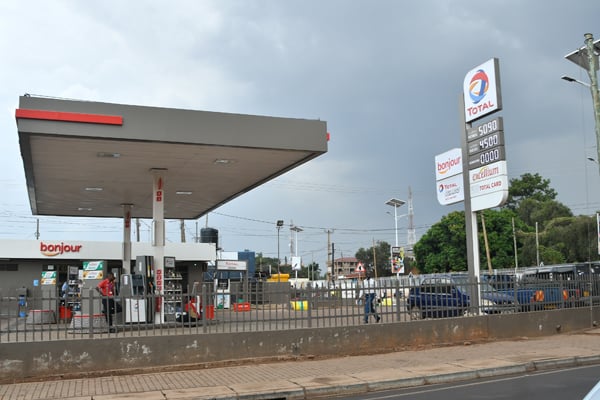Experts sound inflation alarm as diesel price outstrips petrol

An attendant refuels a car at a fuel station in Kampala last year. PHOTO/ ABUBAKER LUBOWA
What you need to know:
- Between June 2021 and March 2022, fuel prices in Uganda have gone up by more than Shs1,000.
- Shs5,340: At some Total fuel stations, diesel sold at Shs5,340 while petrol went for Shs5, 310.
Experts have warned about impending inflationary tendencies should government fail to reign in on the skyrocketing diesel prices, which have since surpassed petrol.
A mini-survey by Daily Monitor yesterday revealed that more pump stations were selling diesel at almost the same price as petrol. At some Total fuel stations, diesel sold at Shs5,340 while petrol went for Shs5, 310.
At some Shell pump stations around Kampala City and on some outskirts, petrol was selling at Shs5,310 while diesel was being sold at Shs5,300.
ALSO READ: Fuel price in Uganda: A case for regulation
Fuel prices began rising in July 2021 from Shs3,700 for petrol and Shs3,200 for diesel. By December 2021, a litre of petrol cost Shs4,580 yet demand was low due to restrictions in certain sectors of the economy. Between June 2021 and March 2022, fuel prices in Uganda have gone up by more than Shs1,000.
Transport fares to different parts of the country momentarily were revised depending on the distance of one’s journey, and transport owners at the time attributed the increase on petrol prices.
Experts say this is the highest that diesel prices have gone up, and it has a fundamental effect on the transport and the manufacturing sectors, which according to them are the key determinants of the economy.
Yesterday, transporters told this publication that they will “certainly” increase fares by anywhere between Shs5,000 and Shs10,000 since the vehicles mostly use diesel.
Mr Robert Mutebi, the secretary of the United Bus Owners’ Association (UBOA), said they have called for a meeting today to discuss the amount that will be topped up on the current fares.
“We don’t have a choice but we have to increase the prices because we already know what this means to the business. In our meeting, we shall be setting new prices because the government has refused to listen to our repeated call for them to work on the issue,” Mr Mutebi said.
RELATED STORY: Fuel prices: What is the status of reserves?
Mr Daniel Birungi, the executive director of the Uganda Manufacturers Association, said since most machines used at the logistical level process of products use diesel, the increase in the prices means a high cost of the product, which consequently affects the price of a finished good.
“We already have a problem of high levies on electricity, so manufacturers use diesel-powered generators. With the prices surpassing petrol, we shall see the effect on the finished product because the cost of production is a big factor in determining the price of the final product,” he said.
During the 2021/2022 financial year, the government increased excise duty on fuel from Shs1,350 to Shs1,450 per litre of petrol. The tax on diesel rose from Shs1,030 to Shs1,130 per litre.
Experts say this is partly to blame for the high pump price but it is not enough to explain the sharp increase in the last two months, which some believe is spurred by price manipulation.
ALSO READ: With high fuel prices, my IST comes in handy
In his response to the situation, Rev Frank Tukwasibwe, the commissioner for petroleum at the Ministry of Energy, told Daily Monitor last evening: “The government has nothing to do about the prices because they are international. What would you do? Uganda doesn’t set those prices.”
Mr Henry Kimera, a consumer advocate, said the government should revise its fiscal policy and slash the taxes on the fuel and reduce expenditures on other sectors, which do not directly affect the economy.
“The President can make an announcement because he is the main minister of finance and if they don’t do that, we are headed for hell as a country. But the consumers should also cut their expenditure,” he said.





